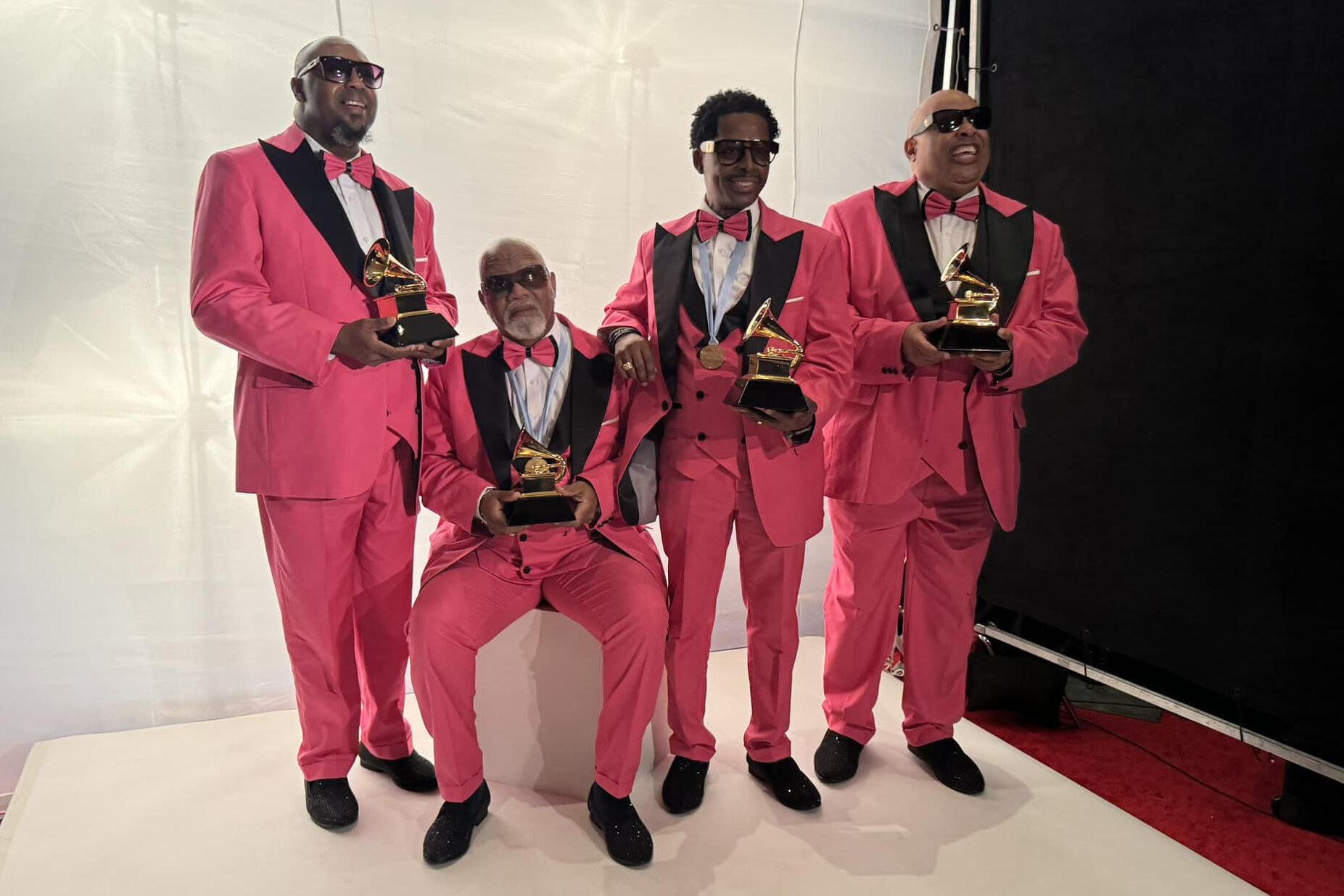The Blind Boys of Alabama will be featured on NBC’s "Today" show on Monday in the 8-9 a.m. hour. They have a lot to talk about.
The gospel singing group has just completed a rousing tour of Australia.
They released their first book, “Spirit of the Century” (Hachette Books) in March. It can be ordered here.
They have a docudrama just out on PBS.
They were founded in 1939 at the Negro Alabama Institute for the Deaf and Blind, long since merged into the Alabama Institute for the Deaf and Blind in Talladega.
They have won a number of Grammy awards. They were inducted into the Gospel Music Hall of Fame in 2003 and received a Lifetime Achievement Award in 2009.
Their hit, “Way Down in the Hole,” by Tom Wait, was adopted as the theme song of the HBO series “The Wire.”
The Blind Boys will be talking about their new PBS film, “A Symphony Celebration,” which played and is now archived here.
In the film, The Blind Boys are backed up by The Alabama Symphony Orchestra and a 300-voice choir from Alabama's historically black colleges and universities, including Alabama State, Alabama A&M, Miles College, Tuskegee University and Talladega College, joined by choirs from Birmingham-Southern College and UAB.
This film is an all-Alabama cast.
A 91-year-old member of The Blind Boys, Jimmy Carter of Birmingham, told this story of the group’s first radio broadcast, back when radio was the ticket for gospel groups:
On June 10, 1944, six teenagers from the Alabama Institute for the Negro Deaf and Blind arrived at the headquarters of Birmingham radio station WSGN. Broadcast from a studio at the Dixie Carlton Hotel, the station was a fixture for news and music in the area, but for the students of the “Negro Institute,” it was far more than that. It was a beacon of hope, a refuge from the harsh realities of the Jim Crow South, a portal to another world they could only dream of.
With no radios available at school, the boys had to get creative in order to listen, often slipping away to the homes of nearby friends and family members in the afternoons to catch gospel groups.
On this particular afternoon, the boys would be doing the singing themselves, performing professionally for the very first time. They had no way of knowing but the sextet (then) —who would adopt the name, The Blind Boys of Alabama — was embarking on an 80-year odyssey that day, one that would take them everywhere from Carnegie Hall and the White House to the Grammys and the Gospel Hall of Fame. And recently on a tour of Australia. They broke down racial barriers, soundtracked the civil rights movement, and helped redefine modern gospel music in the process.
“From the very first show, the Blind Boys of Alabama have always tried to lift people up and make them feel good,” said Carter. “We don’t want people to come to our concerts and leave the same way they came. We want to give them a better outlook on life.”
“The spirit of the Blind Boys isn’t about what you can’t do. It’s about what you can do,” said Ricky McKinnie, who joined the group in 1989. “As long as we stay true to that, as long as everybody gives all that they have to give and we sing songs that touch the heart, this group will live on forever.”
The Blind Boys even recorded one of their albums, "Echoes Of The South," in Alabama’s recording mecca, The Shoals, in the studio, “The Nuthouse,” in Sheffield.
McKinnie said in a 2011 interview with Mother Jones Magazine, "Our disability doesn't have to be a handicap. It's not about what you can't do. It's about what you do. And what we do is sing good gospel music."
Jim ‘Zig’ Zeigler writes about Alabama’s people, places, events, groups and prominent deaths. He is a former Alabama Public Service Commissioner and State Auditor. You can reach him for comments at ZeiglerElderCare@yahoo.com.
Don’t miss out! Subscribe to our newsletter and get our top stories every weekday morning.










